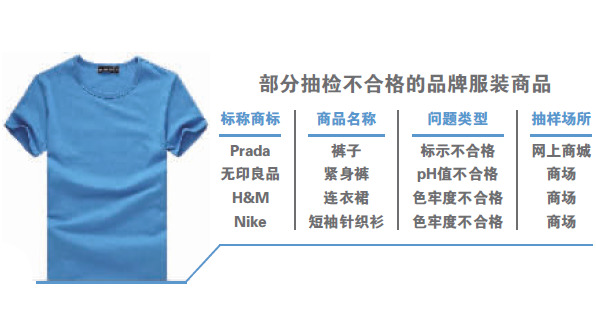
A survey found that both Chinese and foreign businesses adopted double standards toward product quality for goods sold in the Chinese and overseas markets, according to a People’s Daily report on Dec.2. Products in the Chinese market are usually of a lower quality compared to goods sold in the overseas market.
Experts explained that such difference can be attributed to industrial standards, market demand and incomplete supervision systems, among other factors. According to the report, Chinese consumers often “chase” high-quality products overseas, only to find that many are actually made in China. Over 99 percent of food exported from China passes industry standards, but food in the domestic market only has a 90 percent passing rate, despite management and regulations.
After coming to China, some international brands, such as McDonald’s, KFC and Pizza Hut, become more lax with their standards, leading to several food safety scandals in recent years. Some have even refused to recall products after quality issues emerged. For example, in September, Samsung recalled its Note 7 smartphones in the U.S. and Australia, excluding the Chinese market from its recall list. Toshiba did the same thing by opting not to recall defective notebooks, TVs and other products in China.
Zhao Ping, a researcher at the China Council for the Promotion of International Trade, said that consumers are more focused on quality these days, but high-quality products in China cannot satisfy the current needs of consumers. Persistent double standards have aggravated supply and demand conflicts in China.
In addition to lower-quality products in the Chinese market, a supply and demand imbalance, overall supplyand improper management have also contributed to dissatisfactory products in China, analysts believe.
On the other hand, the phenomenon of high-quality products being made in China but sold abroad can be explained by the fact that high prices suppress sales among Chinese consumers, so producers choose to seek profit in international markets instead.
Jing Linbo, a researcher at the Chinese Academy of Social Sciences, pointed out that the government can not only rely on the market to make adjustments, but should encourage producers to pursue higher quality in case of market failure.
Price wars can no longer be the only point of competition between different enterprises; a good mechanism for product quality management must be established, the report stated.
China should raise its current standards in order to accomodate shifting demands. Furthermore, China should improve its protection of intellectual property rights in order to encourage more innovation among producers,the paper said, citing experts.


 川公网安备 51019002001991号
川公网安备 51019002001991号





